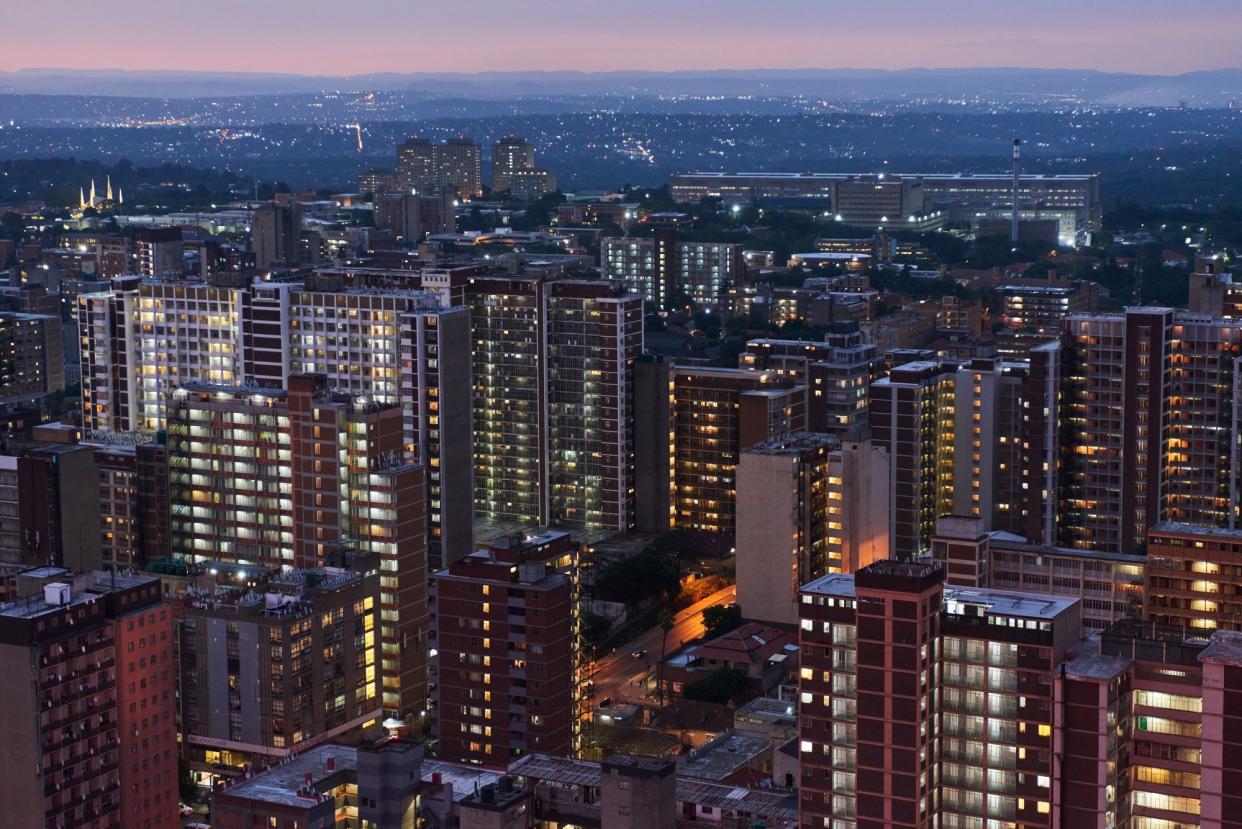South Africa Plans New Law to Increase Power Capacity

- Oops!Something went wrong.Please try again later.
(Bloomberg) -- South Africa’s National Energy Crisis Committee, a body run by the office of President Cyril Ramaphosa, expects record power outages to ease as measures including a new law to fast-track plant development take effect.
Most Read from Bloomberg
Microsoft to Cut Engineering Jobs This Week as Layoffs Go Deeper
Apple Delays AR Glasses, Plans Cheaper Mixed-Reality Headset
India’s Population Has Already Overtaken China’s, Analysts Estimate
Stocks Turn Lower as Growth in Focus; Dow Falls: Markets Wrap
Investors Seek to Pull $20 Billion From Core Real Estate Funds
The committee, which includes several cabinet ministers, told business and labor leaders on Monday that a range of interventions have been made at a time when South Africans are enduring blackouts of as long as 12 hours a day.
“As these measures take effect, the supply of electricity will significantly improve,” the committee, known as Necom, said in a presentation sent to Bloomberg by Ramaphosa’s office.
South Africa’s government has faced sharp criticism after power cuts were imposed on 205 days last year and every day so far in 2023. Ramaphosa canceled his trip to the World Economic Forum in Davos to hold crisis talks with power utility Eskom Holdings SOC Ltd., labor groups and business.
The measures that Necom said may ease the crisis include:
The first of more than 100 privately owned power plants being developed will connect to the grid by the end of this year. In total, the planned projects could produce 9,000 megawatts, much of it for the companies’ own use.
Emergency legislation is being developed to allow the faster approval and development of power plants.
Contracts for the construction of plants that will produce 2,800 megawatts of renewable energy for the grid have been signed and construction will soon begin.
As much as 1,000 megawatts may be imported this year from neighboring countries and Eskom will buy 1,000 megawatts of excess energy from private producers who already have facilities.
Six of Eskom’s 14 coal-fired power plants have been “identified for particular focus” in a bid to get them to perform more reliably.
Efforts to finish incomplete plants and maintenance of other major units are being made.
The time to complete regulatory processes for new plants has been reduced.
Optimistic Forecasts
NECOM’s forecasts on a slide presented to the business and labor leaders was even more optimistic and jarred with the expectations of business.
The government body forecast the addition of up to 8,822 megawatts of power to the grid this year and a further 8,665 megawatts next year. Nearly 30,000 megawatts could be added post-2024, with all of the forecasts subject to “market response.”
Necom forecast that better performance of existing coal-fired power plants could add 6,000 megawatts back to the grid, while Business Unity South Africa, the biggest business lobby group, only had half that amount available from the current fleet in its own presentation. Currently only about half of Eskom’s generation capacity of more than 40,000 megawatts is operational.
Business and Necom expect between 850 megawatts and 1,000 megawatts to be added to the grid from rooftop solar and the government expects plants that would supply power directly to municipalities to add 1,500 megawatts next year. Longer term government plans include additional power from solar, wind, gas and battery-storage facilities.
Still, BUSA listed a number of steps it says need to be taken that the government is currently pushing against or has yet to take action on.
It said initiatives that could be started within a month include the government agreeing to pay for enough diesel to run its peaking plants, a solution that would end a spat between the National Treasury and the utility, which has said it hasn’t got the money to run the facilities.
The government should also agree to buy any existing surplus power from the private sector and give tax breaks for solar geysers and solar installations on residential and business premises, Busa said.
It also called for more clarity on the process for hiring a new chief executive officer for Eskom, after the current leader, Andre de Ruyter, resigned and is due to leave at the end of March. Concern was also expressed about a ruling party plan to move Eskom from the oversight of the public enterprises minister to the energy minister, who is also responsible for running tenders for the provision of power from the private sector.
Energy Minister Gwede Mantashe has repeatedly criticized plans to move away from coal-fired power and is skeptical of the capability of renewable energy to meet demand.
“Business has concerns with regard to the rationale, benefits and potential ramifications” of moving Eskom’s reporting lines, it said.
(Adds additional forecasts and business demands below bullet points.)
Most Read from Bloomberg Businessweek
It’s a Business Free-for-All in a Russia Transformed by Sanctions
The Winklevii Are the Latest Crypto Founders to Blame Everybody But Themselves
What Tech Job Cuts Say About Silicon Valley—and the Rest of the Economy
©2023 Bloomberg L.P.


